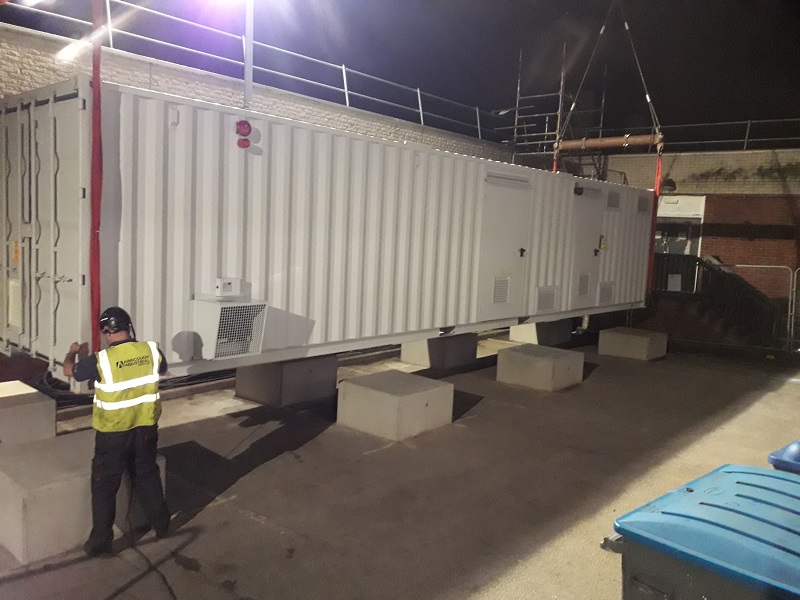Veolia has commissioned a new battery energy storage system (BESS) at the 500-bed Rotherham Hospital as part of a 20-year Energy Performance Contract (EPC).
The 500kWh storage capacity will contribute to targeted EPC savings of over £1m a year, provide an energy income, increase the resilience of the energy supply, and enable the Rotherham NHS Foundation Trust to cut carbon emissions by 49,620 tonnes.
The EPC used by the trust is the NHS-standard performance contract, managed, procured, financed, and monitored for its lifetime by the Carbon and Energy Fund.
With a growing sustainable energy supply in the energy mix, grid resiliency is important to manage the variable availability of sustainable energy sources such as wind and solar power.
To counter these variations the battery system effectively balances the output of renewable energy sources which operate in a less-predictable manner compared to traditional power stations.
Achieving net-zero carbon will require a sustainable energy supply that can replicate and replace fossil-fuelled power stations
When discharging at peak time, the battery displaces the marginal generator which is still fossil fuelled power for most of the year. In this way it will perform a key role in the transition to a sustainable decarbonised electrical supply.
The BESS comprises multiple battery cells that store electrical energy produced for use at a later time.
Based on the latest lithium-ion technology the battery unit is capable of delivering 500kWh, equivalent to the energy output from 130,000 standard AA size batteries.
The technology enables the trust to take advantage of reduced electricity bills by discharging power, when the demand is highest, which reduces imported electrical consumption and peak electrical import charges.

Using the latest lithium-ion technology, the BESS is capable of delivering 500kWh of energy
Because of its unique reaction speed, and fast-acting controls, it provides continuous stability for the National Grid by adjusting power flows at each millisecond to balance the surplus, or lack of energy, on the network.
Engineered into the electrical infrastructure and CHP system by Veolia, the BESS enables the trust to gain income from the grid by exporting power when there is less power being generated than used by consumers, and also for absorbing power when more power is being generated.
This reduces electrical bills via the BESS’s ability to discharge power at these key times and reduce imported electrical consumption and import charges.
The new BESS at Rotherham Hospital is another key step and helps the NHS to become more sustainable and focus budgets on patient care
And it adds to the financial benefit gained from the fast frequency response through grid stabilisation.
Control takes place automatically via a third-party aggregator, which manages electricity assets to counter load imbalances in response to changes in energy demands.
By operating in an Uninterruptible Power Supply (UPS) mode the system also delivers greater electrical power supply resilience for critical healthcare activities, such as operating theatres, by providing power if grid supply is lost.
Commenting on the project, John Abraham, chief operating officer at Veolia UK & Ireland, said: “Achieving net-zero carbon will require a sustainable energy supply that can replicate and replace fossil-fuelled power stations.
“To do this we believe flexibility and demand management of decentralised energy is the key to addressing this issue.
“Backed by the energy-saving upgrades that are part of the energy performance contract, the new BESS at Rotherham Hospital is another key step in achieving this goal, and helps the NHS to become more sustainable and focus budgets on patient care.”
